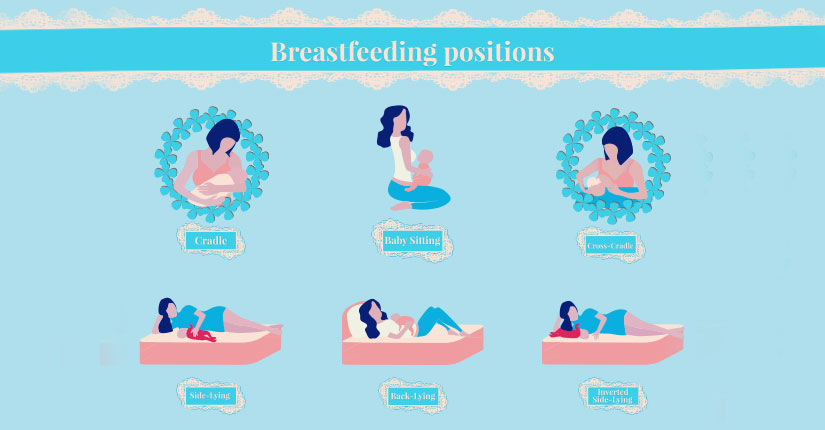FASD: A Silent Epidemic in the modern world
By Nmami Agarwal 09-Sep 2023 Reading Time: 21 Mins

Fetal Alcohol Spectrum Disorder (FASD) is a term used to describe a range of disorders caused by prenatal exposure to alcohol which is a complex, lifelong condition that affects an estimated 1% of the population worldwide. Despite its prevalence, FASD remains a silent epidemic, with many people unaware of its existence or the impact it has on individuals and society as a whole. The effects of FASD can be devastating, ranging from physical abnormalities and developmental delays to behavioral and cognitive difficulties, including problems with memory, attention, and learning. Today, we will explore FASD in detail, including its causes, symptoms, and diagnosis, as well as the challenges faced by individuals living with FASD and their families.
Understanding FASD and its impact
Fetal Alcohol Spectrum Disorder (FASD) is a complex and often misunderstood condition that affects individuals who were exposed to alcohol in the womb which is a lifelong disability that can cause a wide range of physical, cognitive, and behavioral challenges and despite its prevalence and profound impact on individuals and families, FASD remains a silent epidemic, often overlooked or misdiagnose and it is not a single diagnosis, but rather a spectrum of disorders that can manifest in various way and the severity of the disorder can vary greatly, ranging from mild to severe, and the symptoms may present differently in each affected individual. This makes it challenging to recognize and diagnose, further complicating the efforts to provide appropriate support and interventions. The impact of FASD extends far beyond the affected individuals themselves. Families, caregivers, and communities also bear the weight of this condition. The daily struggles and unique needs of individuals with FASD can place a significant burden on parents and loved ones, who often find themselves navigating uncharted territory in terms of understanding and managing the challenges. Furthermore, the societal implications of FASD are significant and individuals with FASD may face difficulties in education, employment, and social interactions, leading to increased dependence on social support systems. The economic burden of FASD is substantial, as the costs associated with healthcare, education, and social services for affected individuals can be substantial over their lifetime.
What is FASD and how does it occur?
Fetal Alcohol Spectrum Disorder (FASD) is a complex and often misunderstood condition that affects individuals who were exposed to alcohol before birth and it is a lifelong disability that can have a wide range of physical, mental, and behavioral effects. FASD is not a single diagnosis but rather an umbrella term that encompasses a spectrum of disorders, including Fetal Alcohol Syndrome (FAS), partial FAS, alcohol-related neurodevelopmental disorder (ARND), and alcohol-related birth defects (ARBD). The occurrence of FASD is directly linked to the consumption of alcohol during pregnancy and when a pregnant woman drinks alcohol, it easily crosses the placenta and enters the developing fetus’s bloodstream. Unlike adults, fetuses do not have a fully developed liver to metabolize alcohol efficiently. As a result, the alcohol remains in their system for a much longer time, leading to serious consequences and the developing brain and other organs of the fetus are highly vulnerable to the toxic effects of alcohol. Alcohol interferes with the normal development of cells, leading to structural abnormalities and impairments in various areas of the brain which can result in cognitive and learning disabilities, difficulties with memory and attention, poor impulse control, problems with social interactions, and delays in physical growth. It’s important to note that FASD is entirely preventable and the key lies in avoiding alcohol consumption during pregnancy. Even small amounts of alcohol can have detrimental effects on the developing fetus. Therefore, it is recommended that women who are pregnant or planning to become pregnant refrain from drinking alcohol entirely.
3. The prevalence of FASD: Unmasking the silent epidemic
The prevalence of Fetal Alcohol Spectrum Disorder (FASD) is a deeply concerning issue that demands our attention. Often referred to as a silent epidemic, FASD affects countless lives worldwide, yet it remains hidden in the shadows, largely misunderstood and misdiagnosed to truly understand the gravity of the situation, it is essential to shed light on the prevalence of FASD. According to recent studies, it is estimated that FASD affects up to 1 in 100 children globally, making it more common than autism. However, due to underreporting and limited awareness, the actual numbers may be much higher. The impact of FASD extends far beyond the individuals directly affected and families, caregivers, and communities bear the weight of this invisible burden. Individuals with FASD often face significant challenges in their daily lives, including difficulties with learning, memory, social interactions, and impulse control. These challenges can persist throughout their lifespan, posing barriers to education, employment, and overall well-being. What makes FASD particularly heartbreaking is that it is entirely preventable and occurs when a developing fetus is exposed to alcohol during pregnancy, leading to irreversible brain damage. Yet, despite the known risks, many women continue to consume alcohol while pregnant, often due to a lack of awareness or support by unmasking the silent epidemic of FASD, we can raise awareness, break the stigma, and provide the necessary support systems for those affected. Education plays a vital role in prevention, ensuring that women have access to accurate information and resources to make informed choices during pregnancy.
The physical and cognitive effects of FASD on individuals
Fetal Alcohol Spectrum Disorder (FASD) is a complex and often misunderstood condition that affects individuals who were exposed to alcohol during pregnancy. The physical and cognitive effects of FASD can vary widely from person to person, but they can have a significant impact on their daily lives. Physically, individuals with FASD may exhibit distinctive facial features, such as a smooth philtrum, thin upper lip, and small eye openings and these physical characteristics are often indicative of prenatal alcohol exposure and can help in diagnosing the disorder. Moreover, individuals with FASD may experience growth deficiencies, including stunted height and weight, as well as abnormalities in the joints and limbs. Cognitively, FASD can result in a range of intellectual disabilities and learning difficulties and individuals may have impaired memory, attention deficits, and difficulty with problem-solving and decision-making. This can make it challenging for them to succeed academically and function independently in various aspects of life. Furthermore, individuals with FASD may struggle with social and emotional regulation which may exhibit impulsive behaviors, have difficulty understanding social cues, and struggle with maintaining relationships. This can lead to feelings of isolation and frustration, both for the individual with FASD and their loved ones. It is crucial to recognize that individuals with FASD are not defined solely by their challenges with appropriate support, intervention, and understanding, they can thrive and lead fulfilling lives.
The emotional and social impact of FASD on individuals and families
The emotional and social impact of Fetal Alcohol Spectrum Disorder (FASD) on individuals and families is profound and far-reaching. FASD is a lifelong condition that affects the brain and behavior of those who were exposed to alcohol in the womb for individuals living with FASD, the emotional challenges can be overwhelming. They may struggle with impulse control, have difficulty understanding social cues, and experience heightened emotions. These difficulties can lead to frustration, anxiety, and a sense of isolation. As they navigate through life, they may face challenges in forming and maintaining relationships, managing their emotions, and coping with everyday stressors. Furthermore, the impact of FASD extends beyond the individual to their families. Parents and caregivers often face unique and complex challenges in raising a child with FASD. They may experience feelings of guilt, shame, and helplessness, as they grapple with the knowledge that their child’s condition could have been preventable. The daily stress of managing their child’s behaviors and providing the necessary support and accommodations can take a toll on their emotional well-being and strain familial relationships.
Early identification and diagnosis of FASD
Early identification and diagnosis of Fetal Alcohol Spectrum Disorder (FASD) is crucial in order to provide appropriate support and interventions for individuals affected by this silent epidemic. FASD is a lifelong condition that can have a significant impact on a person’s physical, cognitive, and behavioral development. Recognizing the signs and symptoms of FASD in children is essential for early intervention and these signs may include growth deficiencies, facial abnormalities, developmental delays, learning difficulties, and behavioral challenges. However, it is important to note that FASD can present in various ways and may not always be easily recognizable. Medical professionals, educators, and caregivers play a vital role in the early identification and diagnosis of FASD. Conducting a comprehensive assessment that includes a thorough medical history, physical examination, neurodevelopmental assessment, and evaluation of prenatal alcohol exposure is key to accurately diagnosing FASD. Moreover, it is crucial to create awareness and provide education about FASD among healthcare providers, teachers, and parents to ensure that potential cases are not overlooked or misdiagnosed by promoting early identification and diagnosis, we can help individuals with FASD receive the support and accommodations they need to thrive. In addition, early intervention programs, such as occupational therapy, speech therapy, and behavioral interventions, can significantly improve outcomes for individuals with FASD. These interventions focus on addressing the specific challenges and needs of each individual and can help mitigate the impact of FASD on their daily live by emphasizing the importance of early identification and diagnosis of FASD, we can shed light on this silent epidemic and ensure that individuals affected by FASD receive the necessary support and resources to lead fulfilling lives. It is through collective efforts that we can unmask FASD and work towards a world where every individual receives the understanding and assistance they deserve.
Strategies for supporting individuals with FASD
Supporting individuals with Fetal Alcohol Spectrum Disorder (FASD) requires a thoughtful and comprehensive approach and this section will explore effective strategies that can make a significant impact on the lives of those living with FASD.
1. Education and Awareness: Raising awareness about FASD is crucial in helping society understand the unique challenges faced by individuals with this condition by educating the community, we can promote understanding and reduce stigmatization.
2. Early Diagnosis and Intervention: Early identification of FASD is key to providing appropriate support and interventions and timely diagnosis allows for tailored treatment plans and access to necessary resources, such as speech therapy, occupational therapy, and behavioral support.
3. Individualized Support Plans: Each person with FASD has unique strengths and challenges. Developing individualized support plans that address specific needs is essential also these plans may include strategies for managing impulsivity, improving executive functioning skills, and creating structured environments.
4. Collaborative Care: Effective support for individuals with FASD requires collaboration among various professionals, including healthcare providers, educators, and social workers by working together, they can ensure a holistic approach to care and support that addresses all aspects of the individual’s life.
5. Sensory Support: Many individuals with FASD experience sensory sensitivities. Providing appropriate sensory support, such as creating calm and quiet spaces, using sensory tools, and implementing sensory diets, can help individuals regulate their sensory experiences and reduce anxiety.
6. Advocacy and Empowerment: Advocating for individuals with FASD and empowering them to advocate for themselves is crucial. Promoting self-advocacy skills and creating platforms for individuals to share their experiences can help reduce barriers and promote inclusion.
7. Building Supportive Networks: Encouraging the development of supportive networks, including support groups and mentorship programs, can provide individuals with FASD and their families with a sense of belonging and understanding. These networks can offer emotional support, guidance, and a safe space for sharing experiences.
Breaking the silence and embracing empathy for individuals with FASD
In conclusion, it is crucial to break the silence surrounding FASD and instead, foster a culture of empathy and understanding for individuals living with this condition by shedding light on the silent epidemic of FASD, we can create a supportive and inclusive environment that allows individuals with FASD to thrive. It is important to educate ourselves and others about FASD, its causes, and its impact on individuals and their families by understanding the challenges faced by individuals with FASD, we can adapt our approach and provide the necessary support and resources to help them lead fulfilling lives. Empathy plays a crucial role in this journey by putting ourselves in the shoes of individuals with FASD, we can better grasp the daily struggles they face and offer them the compassion and support they deserve which means being patient, providing clear and consistent communication, and creating a safe space for them to express themselves without judgment. Furthermore, it is essential to advocate for policies and programs that address the needs of individuals with FASD and this includes promoting awareness campaigns, supporting research initiatives, and ensuring access to appropriate healthcare and educational resources. Together, we can break the silence surrounding FASD and work towards a society that embraces empathy and understanding and by doing so, we can empower individuals with FASD to reach their full potential and lead fulfilling lives, free from stigma and discrimination.



















